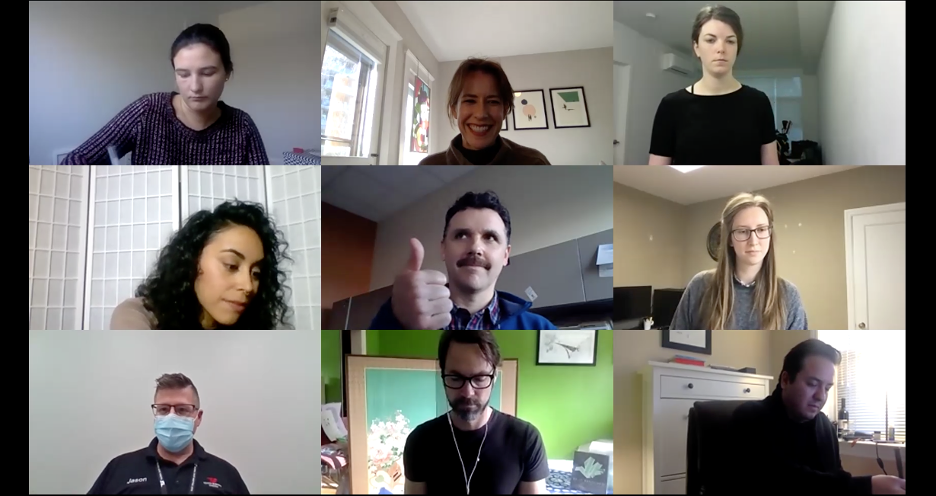
The Waterloo Hub was busy over the past five months delving into the first of our research interviews with local businesses. Stacey O’Sullivan, a summer intern with TRANSFORM and local partner, Sustainable Waterloo Region (SWR), led a series of interviews with five businesses. Stacey and other Waterloo Hub Doctoral and Masters’ researchers converted interview results into pathway maps that capture each firm’s sustainability practices to date, as well as key actors, barriers and enablers in the firm’s sustainability journey.
The Waterloo Hub hosted a Learning Dialogue with participating firms as a synthesis and peer-learning event in November 2020. The Dialogue opened with remarks from Dr. Sarah Burch, Project Director and comments from Stacey O’Sullivan, TRANSFORM intern and interview lead, on the relevance of pathway maps for organizational sustainability planning. Participating firms and researchers engaged in an exciting dialogue about their achievements and challenges along their sustainability journeys, sharing valuable lessons across firms. A final conversation on the firms’ future sustainability actions and promising avenues for support from the TRANSFORM team rounded up the event.
Participants jumped quickly to the challenge and opportunity of listening, communicating, and thoughtful change management as a means to overcome resistance to sustainability initiatives. Moreover, these aspects emerged as crucial in creating a culture of sustainability within the organization. Understanding how leadership “sees value, what’s important to them, what logic they’re following” is helpful in understanding the motivations that underlie negotiations around implementing new sustainability initiatives, said Will Stratford, Director of Corporate Services at Waterloo North Hydro. Further, as Dr. Sarah Burch reflected, cultivating deeper commitments to sustainability at the mindset level will help sustainability initiatives endure even in tough times.
It was enlightening to hear how the pathway mapping research initiative serves a double-purpose as a capacity-building exercise for participants. Eve Whillier, User Experience (UX) Designer at Quarry Integrated Communications, reflected that “Pathway mapping gave us the chance to reflect on the work that has been accomplished, which is very motivating to keep us going…I want to learn how to use the pathway maps to show the impact of initiatives in order to build broader and deeper buy-in within our organization.” Jason Psutka, Energy & Environmental Senior Specialist at Toyota Boshoku, where “sustainability is part of who we are”, suggested there is further opportunity for learning to use the pathway maps for sustainability branding and deeper organizational cultural engagement.”
Dr. Jose DiBella, Work Package 1 lead at the Waterloo Hub, concluded the event with a reflection on these opportunities and research initiatives planned for 2021. The Waterloo team looks forward to deepening work with our existing partners and integrating capacity-building research activities with our partners’ priorities!
